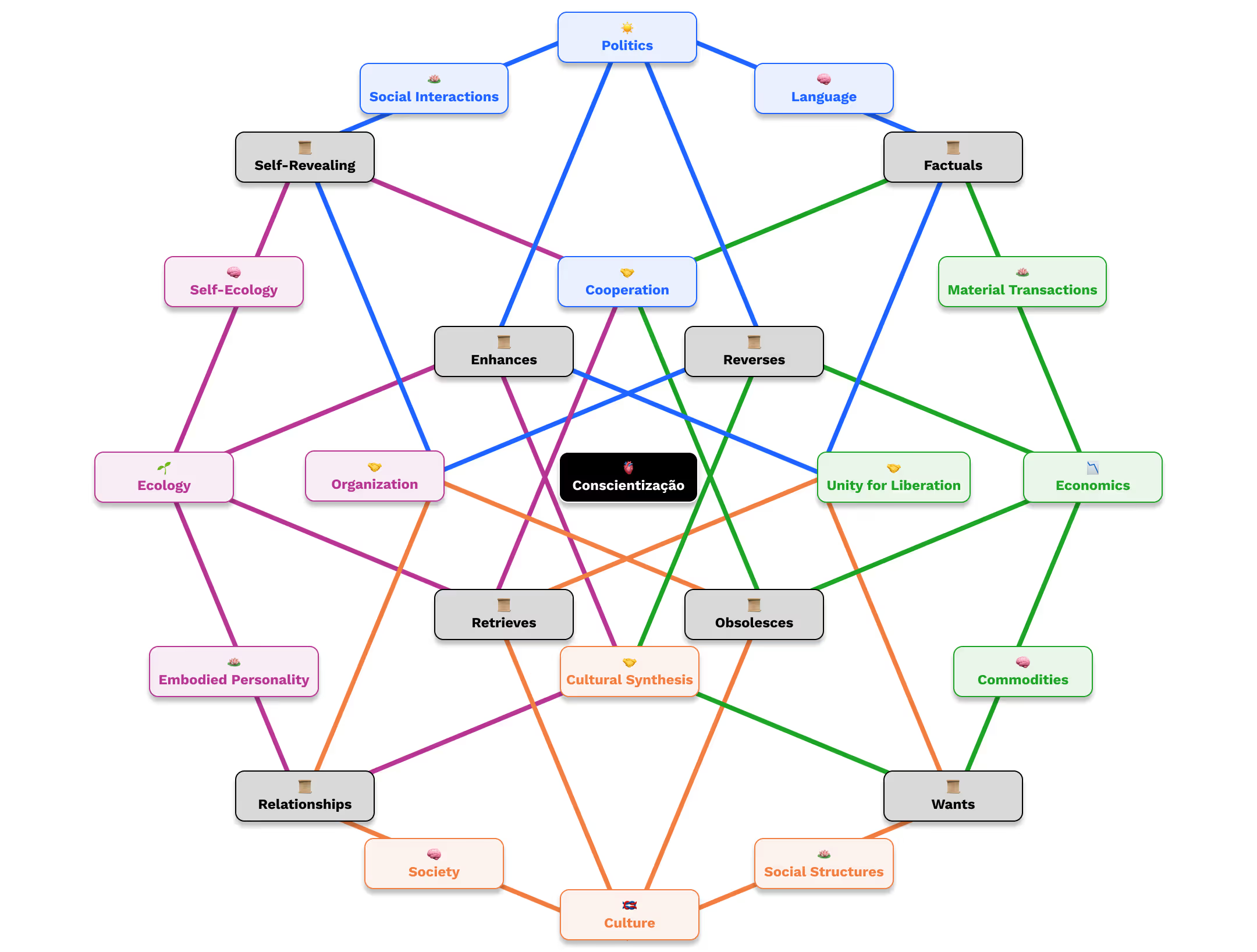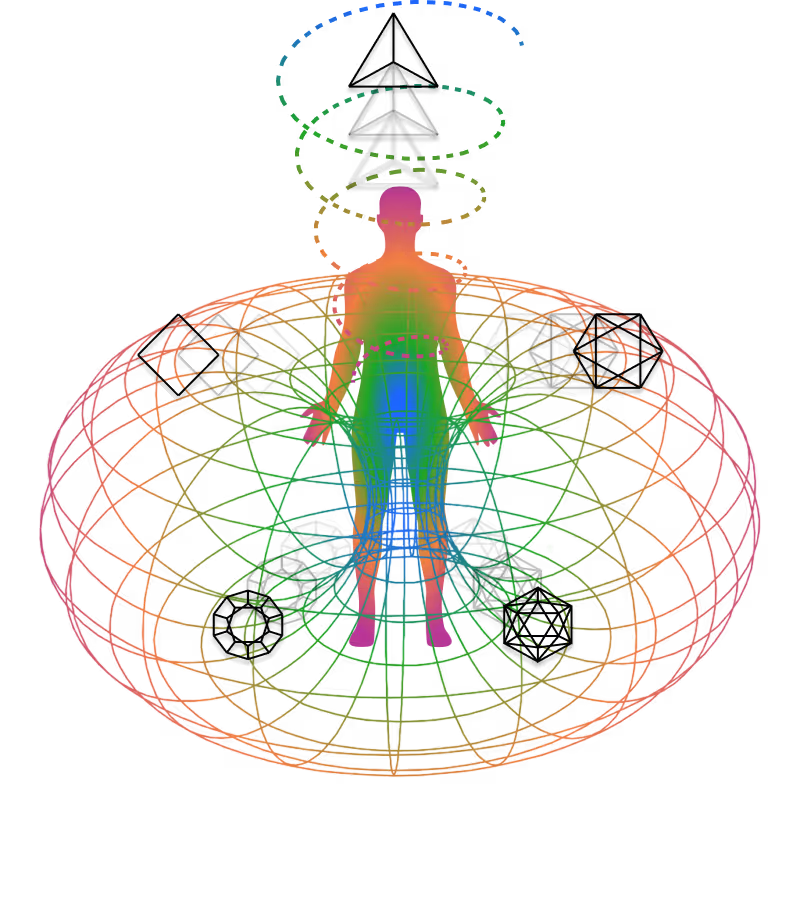Introduction and Preface to Pedagogy of the Oppressed
Lesson Details
An introduction to Paulo Freire's classic.

🎙️ Related Podclass
Lesson Content
This is my favorite book and what caused a major self-transformation towards self-education and self-realization. Paulo Freire's Pedagogy of the Oppressed is indeed a book about education and educational theory, however it is a witness testimony of political power over the individuated mind from his experience establishing literacy workshops to encourage the poor, illiterate people of Brazil to pass literacy requirements for voting representation. Pedagogy transcends our knowledge of politics, economics, culture, and ecology by engaging our core Being through analyzing how people interact, transact, structure, and embody their personality within their social context. Very few books are able to reach directly to the heart of the reader and offer immediate alternative perspectives towards power and transforming a world filled with death and despair through dialectical action.
Pedagogy is often cited to be a Marxist-oriented work on education that analyzes the class struggle of mid-19th century Brazil distinctly through an Oppressor/Oppressed dialectical framework. On the surface this may be true and it is very difficult to argue against the the appearance of the tip of an iceberg, though Freire's interpretation of Christianity is more coherent in the context of his writings than the translated versions of European philosophy that made its way to him. Pedagogy's historic placement is what I consider to be the closest material that exemplifies what Karl Marx wrote nearly 100 years prior. What enables readers to think deeply of the message Paulo is transmitting is the relatability of experienced socio-political-economic circumstances that Freire endured with the modern day genocide economy that preoccupies Western-controlled powers. When we get further into the chapters, we can feel the tortured spirit of the excluded farmers and peasants through Freire's detailed explanation of dehumanization. Brazil, Palestine, Congo, Sudan, any where that does not submit to Western hegemony faced dehumanization and extermination.
This leads into Paulo Freire's central theme, conscientização or Critical Consciousness, refers to learning to perceive social, political and economic contradictions, and to take action against the oppressive pillars of society. The process of dehumanization, a form of anti-dialogue, is notably found in the concept of mass education and the change in teacher-student relationships. Throughout the book, Freire returns to this context between education and personhood that cuts against the social fabric used to suffocate the imagination of children from questioning the possibility of political change. Like removing a burlap sack from your head, awakening Critical Consciousness is the first step in becoming truly human and authentic to ourselves rather than a fearful sycophant to powerful elites that limit our worldview and potential for flourishing.
This book review will cover each chapter and Freire's preface found below. Accompanying this review will be artwork created as visual aids that helped me comprehend the message Freire transmits in this brief, but incredibly dense work of philosophy. Pedagogy was the book that inspired me to create the SolarPunk Sangha, along with the visual representations of concepts, so that others can pick up the torch of education for freedom and liberation. For the readers convenience, I will recommend buying the book at your local bookstore (Barnes and Noble seems to carry it in stock at every store) or bookmark the links below for a free online version:
Preface
These pages, which introduce Pedagogy of the Oppressed, result from my observations during six years of political exile, observations which have enriched those previously afforded by my educational activities in Brazil.
When speaking the truth is responded with political violence, reality must be transformed. These words reflect Paulo Freire's recollection of the harsh inequalities Brazilians endured throughout cycles of political revolutions and the concrete conditions experienced by laborers (peasant and urban) and of middle-class persons of the time. Pedagogy of the Oppressed describes a process of self-awakening towards critical literacy and actions that orient towards freedom. The opening preface describes the fear of freedom men and women perceive under unjust, oppressive conditions that transforms Subjectivity and objectivity of knowledge of our shared world.

The dangers of consciousness raising reveals the fear of freedom internalized under social conditioning. A personal unraveling is experienced in gaining critical consciousness (the sack being removed), which highlights the dangers of attachment in not only the Oppressor, but of a conditioned reality that benefits them. To think and become outside of the status quo rather than maintaining its overreaching authority in our lives is a central theme in Pedagogy. Do we position ourselves, whether left or right, as radicals (creative and liberating) or default to sectarianism (castrating or alienating)? This conflict Freire describes within us highlight the importance of dialogue and engagement with reality. What we know, how we know it, how is knowledge leveraged in practice are themes of social power that are present in education.
Freire puts forward our vocational roles as radicals, to explore human liberation through self-reflection and transformation of internal doubt towards radical affirmation of the spirit of humanity found in every person. This self-narrative helps the reader process the case examples mentioned in the book and provide context of his thought process in political exile. Critical consciousness raises our awareness of conflict within our everyday social interactions through problem-posing education, a model of dialogue and reflection between students and teachers towards knowledge acquisition and authentic action. It is in this challenge of authenticity where we find Freire deeply analyzing the human potential through the lenses of exploitation of the oppressed and how we maintain this contradictory condition by dehumanizing ourselves and others.
The last key theme to mention is Freire's inclusion of Marxist and Christian readers to observe their similarities and objections. There is heavy overlap between the author and these characteristics, Freire was an observer of Christianity and emphasized the social and moral teachings of Christ and his political activities. He utilizes a Marxist class analysis, appearing in the dialectical themes of dialogue and antidialogue, but I would be hesitant to consider this body of work to be Marxist despite his contributions to the field of critical theory. Pedagogy actively observes the historic and concurrent Marxist-Leninist revolutions appearing throughout the world, especially in Brazil that led to the 1964 coup. This is where Freire began writing Pedagogy of the Oppressed and where we will begin in the next lesson covering chapter 1. Go read it!
🤌 Key Terms
🤌 Reflection Questions
Reflect on key questions from this lesson in our Exploration Journal.

Lesson Materials





